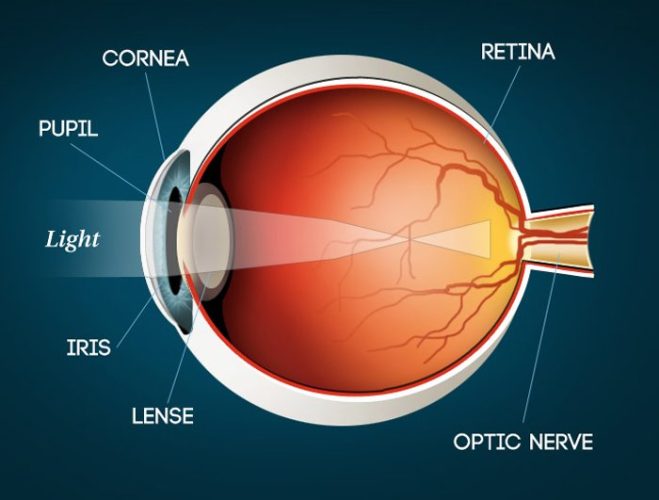Myopia
- Home
- Services

Myopia
Myopia, commonly known as nearsightedness, is a refractive error where distant objects appear blurry while close objects can be seen clearly. Myopia is becoming increasingly prevalent worldwide, particularly among younger individuals. Myopia management refers to strategies aimed at slowing down the progression of myopia in children and teenagers. Slowing the progression of myopia is important because higher levels of myopia are associated with an increased risk of eye diseases such as retinal detachment, glaucoma, and myopic maculopathy later in life.
Here are some common approaches to myopia management :
- Orthokeratology (Ortho-K): This involves wearing special gas-permeable contact lenses overnight to temporarily reshape the cornea. The lenses are removed in the morning, providing clear vision without glasses or lenses throughout the day. Ortho-K has been shown to slow myopia progression in some cases.
- Multifocal Contact Lenses: Multifocal contact lenses have different zones for near and distance vision. Some studies suggest that these lenses may slow down myopia progression compared to traditional single-vision lenses.
- Atropine Eye Drops: Low-dose atropine eye drops are used to dilate the pupil and temporarily relax the eye’s focusing mechanism. Studies have shown that atropine can effectively slow myopia progression, but its use should be monitored by an eye care professional due to potential side effects.
- Bifocal or Multifocal Eyeglasses: Similar to multifocal contact lenses, eyeglasses with bifocal or multifocal lenses may help slow down myopia progression in some cases.
- Outdoor Time: Increasing outdoor time and exposure to natural light has been associated with a reduced risk of myopia development and progression in children.
- Reducing Near Work and Screen Time: Encouraging breaks from close-up tasks like reading or screen use can help reduce eye strain and potentially slow myopia progression.
It’s important to note that the effectiveness of these myopia management strategies can vary from person to person. The best approach depends on factors such as the individual’s age, level of myopia, and eye health. An eye care professional, such as an optometrist or ophthalmologist, will conduct a thorough assessment to determine the most suitable myopia management strategy for each individual.
Early intervention and regular follow-ups are crucial in myopia management to achieve the desired results and minimize the long-term risks associated with high myopia. If you’re concerned about myopia progression, it’s recommended to consult with an eye care professional who specializes in myopia management.

